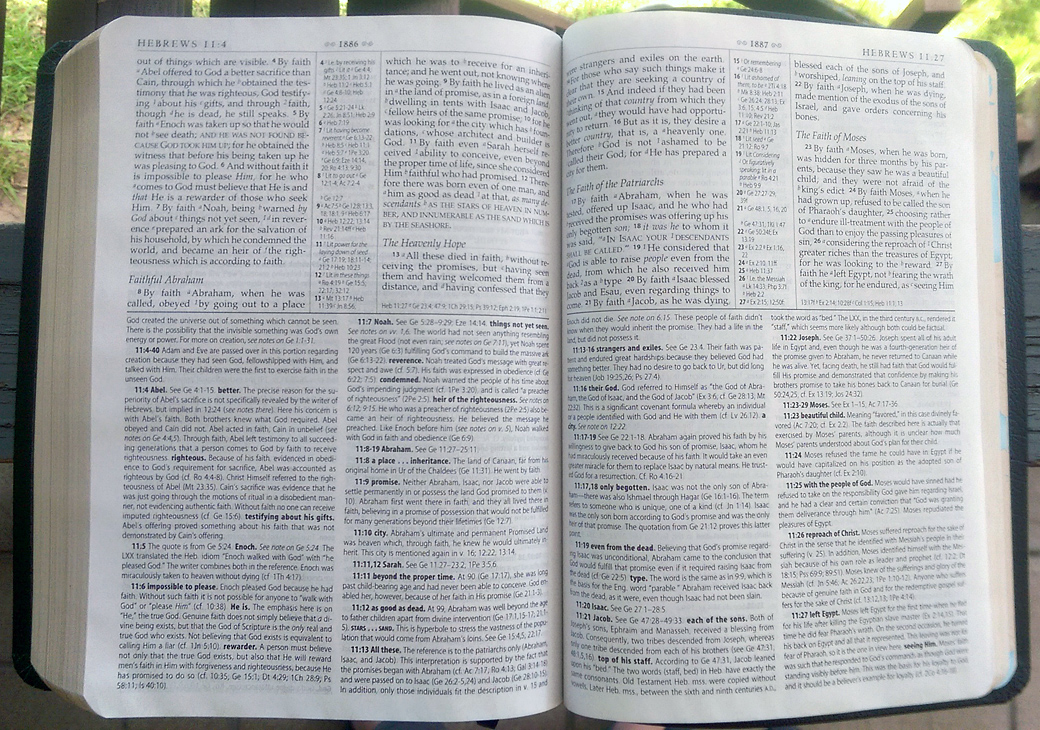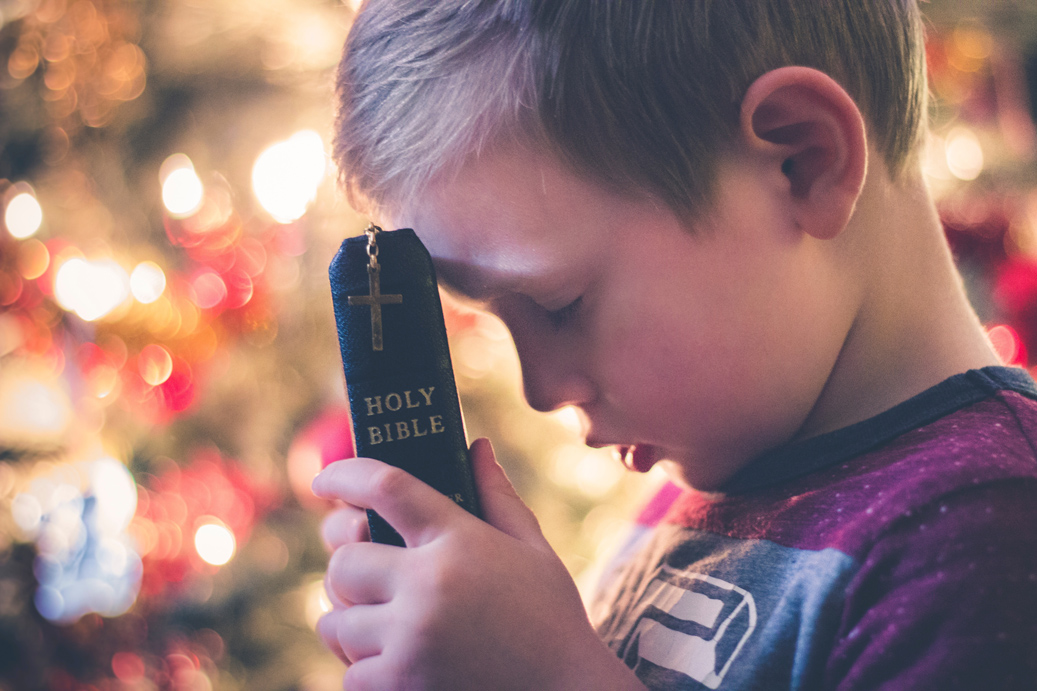Christianity Through the Eyes of a Child
They were bringing to him little children, that he should touch them, but the disciples rebuked those who were bringing them. But when Jesus saw it, he was moved with indignation, and said to them, "Allow the little children to come to me! Don't forbid them, for the Kingdom of God belongs to such as these. Most assuredly I tell you, whoever will not receive the Kingdom of God like a little child, he will in no way enter into it." He took them in his arms, and blessed them, laying his hands on them. Mark 10:13-16
"I'm older than you, Dad!" said my son one day in the courtyard outside church, when he was six. Then he said, "I'm six million years old!". His friend standing next to him then said, "I'm seven million years old!". Then they both said, "We've got a time machine!". Without even needing to stop to think for a millisecond, my (at least to me) completely obvious reply was, "If I had a time machine, I'd go back to being six again".
I liked being six. I liked a lot of things about it. I liked the simple faith in Jesus which I had when Mum read Christian books to me. Especially one book of simple childlike Christian prayers which was usually read before I went to sleep. That was before I "learned" how that kind of faith was unscientific, un-intellectual, and false.
Even irrespective of anything Christian, I liked the basic trust in life that I had then. My parents very obviously did not have that trust in life (even Mum as a Christian), and I could see how true that was even at age six. It didn't make me hugely enthusiastic about wanting to be a big adult. Eventually I ended up the same way myself, and lost that simple innocent trusting feeling that things would just be okay.
Over the years I've thought about that a lot, why it happens, and how to get back that basic feeling of trust in life and in God. This page contains a few ideas along those lines, and ideas about making use of "childlike" things as adults. Of course you can use them with children too.
Receive the Kingdom of God Like a Little Child
The Bible tells us in many different places that we are children of God, and that God is our father in heaven. This analogy is made so many times and in so many different ways that it's probably fair to say that our entire approach to Christianity should be based on it. Jesus pretty much says this literally in Mark 10:15 (which is part of the Bible quote at the top of this page).
"Most assuredly I tell you, whoever will not receive the Kingdom of God like a little child, he will in no way enter into it."
One of the ways this analogy of being like a child is used is the metaphor of a parent chastising a child for misbehaving — so that the child learns not to do things that will harm them. This is done for the benefit of the child, and I think anyone who's a parent, with children of their own, will agree with this. It's really not that fun — for them, nor for you — to discipline your children. (Unless you're a sadist or something, but that's a minority group. For average, normal parents it's definitely not fun.)
The discipline happens for the benefit of the child, not the parents. Even though the child doesn't like it at the time that it's happening. It's exactly the same with God when we experience his discipline:
You have not yet resisted to blood, striving against sin; and you have forgotten the exhortation which reasons with you as with children,
"My son, don't take lightly the chastening of the Lord, Nor faint when you are reproved by him; For whom the Lord loves, he chastens, And scourges every son whom he receives."
It is for discipline that you endure. God deals with you as with children, for what son is there whom his father doesn't discipline? But if you are without discipline, of which all have been made partakers, then are you illegitimate, and not children.
Furthermore, we had the fathers of our flesh to chasten us, and we paid them respect. Shall we not much rather be in subjection to the Father of spirits, and live? For they indeed, for a few days, punished us as seemed good to them; but he for our profit, that we may be partakers of his holiness.
All chastening seems for the present to be not joyous but grievous; yet afterward it yields the peaceful fruit of righteousness to those who have been exercised thereby. Therefore, lift up the hands that hang down and the feeble knees, and make straight paths for your feet, so that which is lame may not be dislocated, but rather be healed.
This idea has been largely (if not entirely) forgotten by modern society. "Sin" means something that God doesn't want us to do because it's bad for us. If we trust in God, and believe in Jesus as our Lord and master, much of life becomes a learning experience — learning how to live in the ways that God wants us to live, which also (sooner or later) make our own lives much, much better.
Apart from being disciplined like a child, there are many more-obviously positive benefits of being a child of God:
The Spirit himself testifies with our spirit that we are children of God; and if children, then heirs; heirs of God, and joint-heirs with Christ; if indeed we suffer with him, that we may also be glorified with him. For I consider that the sufferings of this present time are not worthy to be compared with the glory which will be revealed toward us.
But when the fullness of the time came, God sent out his Son, born to a woman, born under the law, that he might redeem those who were under the law, that we might receive the adoption of children. And because you are children, God sent out the Spirit of his Son into your hearts, crying, "Abba, Father!" So you are no longer a bondservant, but a son; and if a son, then an heir of God through Christ.
"Therefore, I tell you, don't be anxious for your life: what you will eat, or what you will drink; nor yet for your body, what you will wear. Isn't life more than food, and the body more than clothing? See the birds of the sky, that they don't sow, neither do they reap, nor gather into barns. Your heavenly Father feeds them. Aren't you of much more value than they?"
"Which of you, by being anxious, can add one cubit to the measure of his life? Why are you anxious about clothing? Consider the lilies of the field, how they grow. They don't toil, neither do they spin, yet I tell you that even Solomon in all his glory was not dressed like one of these. But if God so clothes the grass of the field, which today exists, and tomorrow is thrown into the oven, won't he much more clothe you, you of little faith?"
"Therefore don't be anxious, saying, 'What will we eat?', 'What will we drink?' or, 'With what will we be clothed?' For the Gentiles seek after all these things, for your heavenly Father knows that you need all these things. But seek first God's Kingdom, and his righteousness; and all these things will be given to you as well."
Childlike Things You Can Do As An Adult
Reading Children's Bibles: I once studied a course about nature, which gave a piece of advice that I took notice of — and found to be quite helpful. It suggested to not only learn from books written for adults, but also to read and learn from books written for children. I've found this also works well with Christianity, and especially with children's Bibles.

Children's Bibles are a good way even for adults to learn the most popular Bible stories. From 'The Illustrated Children's Bible' by Janice Emmerson-Hicks.
Of course some are going to be better than others for this purpose, but you can check them out on an individual basis. Children's Bibles are a really good way of getting to know the most popular Bible stories, both for adults and for children, and especially for new Christians.
Comic Book Bibles: These are usually made more for older kids or teenagers, but I still like them as an adult. Some other Christian books can be found in this format too, e.g. The Heavenly Man.

The many illustrations of comic book style Bibles can convey an extra sense of drama, while also making the text very easy to read. From The Kingstone Bible, Daniel 5:5-8.
Reading Aloud: This is something commonly done with children but much less so with adults. You can read books aloud to other adults! There's no rule against doing it, but people usually don't seem to think of it much anymore. I guess because the more powerfully attention-grabbing types of media, like video, have taken over the role that listening to people read once played. And even video is now very often watched alone.
It's really not very long (perhaps a few hundred years, if that, compared to the whole history of humanity) since most people couldn't read nor write. Most people experienced the Bible, and other stories and writings, from other people reading aloud to them. In fact much of the Bible was written with the expectation that it would be read aloud to other people:
When this letter [that is, the Book of Colossians] has been read among you, cause it to be read also in the assembly of the Laodiceans; and that you also read the letter from Laodicea.
I love study Bibles, but I can understand that so much information, packed so densely, can sometimes seem intimidating. Reading and discussing the Bible aloud is a good way to get around this. There's no rule that you can only do it in official Bible study groups.
You can even read the Bible aloud on your own, and pray God's word back to God.

I love study Bibles, but I can understand that this much information, packed so densely, can sometimes seem intimidating. From "The MacArthur Study Bible", NASB version.
You're Part of God's Family: The church is God's family. In the Bible quite often the words used to refer to other Christians are words like brothers and sisters. In this sense you really are part of a family. Which can be a comfort to everyone, but perhaps especially to those who aren't close to (or on good terms with) a genetically-related family.
Shielding Your Eyes and Ears: I read somewhere once (in a Christian context) that if a movie or other type of entertainment is rated as unsuitable for children, then it's probably unsuitable for adults, too. I've tried to follow this myself most of the time and I'm sure it's helpful. The word "adult" is used in certain contexts in modern life as a euphemism for "depraved" — and as a child of God, most of this kind of thing is best avoided. In the sense that life is better when these kinds of things are avoided.
Just Trusting God Like a Child Would: When I was six I lived in a shop and it was fun for me. It was very much not fun for my parents. Clearly there was one big difference — that I didn't have any responsibility in an adult sense (e.g. to try to run the shop as a business, and make a profit). However, if you think about it in Christian terms, this isn't as much of a difference as it perhaps seems at first. As Christians we're responsible for our behaviour in following Christ — but other than that, much of the rest of our lives can (and even should) be left up to God to determine. Because God knows better than we do what's good for us, God loves us, and God is in ultimate control of whatever ends up happening anyway. (Despite how hard we may sometimes try to fight against this).
If you have to try so desperately hard at something that it's going to make you ill, and then still fail at it anyway, perhaps you were never meant to have that thing in the first place. I should take my own advice here more — and I definitely, absolutely, should have taken this advice more (a lot more) in the past.
This "just trusting God" idea also means that we don't need to delve into all kinds of complicated logical arguments for and against things, when we can have a simple childlike faith instead.

Jesus says that the simple faith of a child is worth more than all the intellectual ability, higher learning, life experience and material success in the world. Photo: StockSnap / Pixabay.
Below is a poem that I read in a children's encyclopedia when I was perhaps three years old. Or four? I have no idea exactly how old I was — but I can't have been much older than that, because I clearly remember thinking as I read it that six seemed so amazingly old, and much older than I was at the time. In my memory of it, I was alone and reading in bed, in the morning, with the sun coming in the North-facing window. I'm sure I must have read it more than once but that's how I remember reading it.
I don't remember the entire poem (it was a long time ago), but the first two and the last lines as I've written below are extremely close to the original. I could try to Google it, but I'd rather leave the memory fragment in my mind as it is. And even without the missing middle lines, what I do remember of it fully captures the essence of the poem:
When I was one, I'd just begun,
When I was two, I was still quite new.
When I was three,...? I've forgot, sorry. You can make up your own if you like. ("I knew I was me" fits pretty well.)
When I was four... I'm not even going to try to remember this.
When I was five, [something]...
But now that I'm six, I'm as clever as clever. I hope I stay six for ever and ever.
When Not to Apply this Principle
Here's a few situations when this concept of being childlike is not the best approach to take:
For Adults: The idea of still being effectively a child at age 20, 25, or 30 in terms of your main interests in life being the Xbox. Or something along those lines.
Even once past the "hanging out for the latest PlayStation (and latest game for it)" stage, a lot of adults move on from that to a "hanging out for the latest new car, new house, or new kitchen" stage. Which in some ways is much better (you can drive a car, live in a house, and cook in a kitchen — you can't do anything in real life with your score in some game). But in some ways not it's really that different. There's much more to life than material possessions:
But godliness with contentment is great gain. For we brought nothing into the world, and we certainly can't carry anything out. But having food and clothing, we will be content with that.
But those who are determined to be rich fall into a temptation and a snare and many foolish and harmful lusts, such as drown men in ruin and destruction. For the love of money is a root of all kinds of evil. Some have been led astray from the faith in their greed, and have pierced themselves through with many sorrows.
But you, man of God, flee these things, and follow after righteousness, godliness, faith, love, patience, and gentleness. Fight the good fight of faith. Lay hold of the eternal life to which you were called, and you confessed the good confession in the sight of many witnesses.
Receiving the Kingdom of God like a little child doesn't mean that we don't grow as Christians. This can get confusing but I think that for most adults living average lives in the secular modern world, growing "up" as Christians could be thought of as becoming more childlike (as much of this web page explains).
However there are ways that this childlike metaphor shouldn't be taken. Billy Graham explained this well. (Soon I'll update this to include a proper link to the correct sermon, at the correct point of time in the sermon — I think it was his sermon called "How to Live the Christian Life", but I don't remember 100% for sure.)
Graham explains that a lot of Christians get converted, and at first they're naturally "baby Christians", but then they never grow from there to become anything more than that. Some of them, maybe, go to Church (occasionally or even sometimes regularly) and perhaps even do a tiny bit of prayer and Bible reading, for a few hours a week (if that) in total, and live out the entire other 165 (or whatever) hours of their week almost exactly the same as unbelievers do. He explains how this means missing out on a lot of very good things that your life could otherwise be full of.

When living as a disciple of Jesus Christ your goals, interests, the main activities of your life, and how you spend your time completely change — gradually, or sometimes suddenly. Eventually they become very different, and much more satisfying, than before. Photo: Pexels / Pixabay.
For Children: I think that with boys especially, there can arise a problem of portraying Jesus (and other biblical characters, and Christianity overall) as being wimpy and too childlike in certain ways. Jesus was anything but wimpy. This way that Jesus (and Christianity overall) is currently very often portrayed to younger children has been described using language as strong as a "time bomb" for boys.
The idea is that when a boy reaches a certain age, he becomes primarily interested the world of boys that have grown up (i.e. men). And if the only internalised image he's ever known of Jesus and Christianity is a wimpy, five-year-old-level-cartoon completely un-masculine image, there's a very real chance of him losing interest entirely in Christianity. Thinking that it's something for babies, or for kids, or girls, or wimps. I used to think this myself once so I can relate to this completely. I think that the comic book Bible style of presentation is probably a good thing here — as these do seem to be quite masculine in terms of having a lot of images of masculine things like war heroes and battles, and mimic the "superhero" comic style, and don't seem like they're "for babies".
For Adolescents: I was going to write a couple of paragraphs here, but it got so long that now it's a separate web page.








